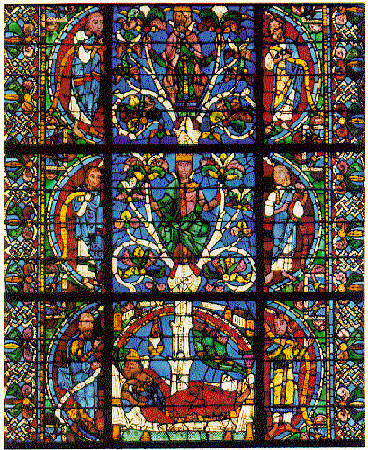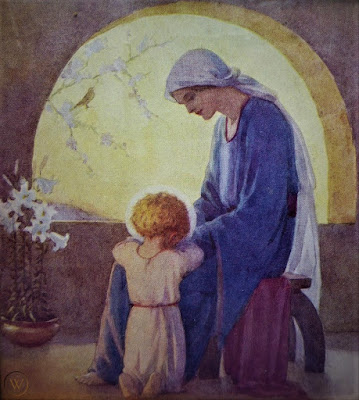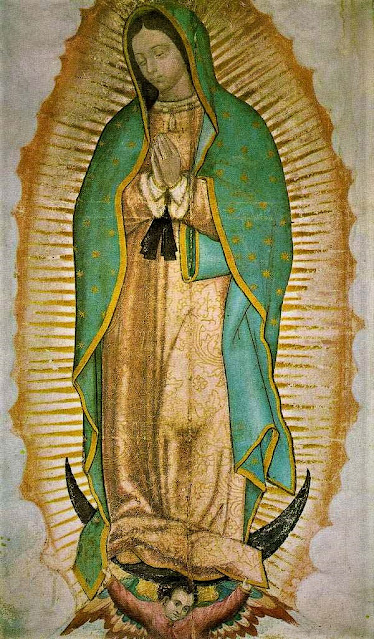“Rejoice in the Lord alway: and again I say, Rejoice. Let your moderation be known unto all men. The Lord is at hand. Be careful for nothing; but in every thing by prayer and supplication with thanksgiving, let your requests be made known unto God.”
- St. Paul’s Epistle to the Philippians
The purple of Advent gives way to rose-coloured vestments on this Third Sunday of the season, called Gaudete because of the day’s introit. As we prepare for the celebration of the birth of our redeemer, and prepare to meet Him as our judge, so it comes as a trumpet before dawn: “Rejoice. Rejoice in the Lord always; again I will say, rejoice.” And there is a reason why we should rejoice. Because “the Lord is at hand.” We, who have been born by the waters of baptism and through the blood of Christ have every reason to rejoice, because our Lord and Saviour is close by, ready to draw us closer to Him, to give us the place which He has prepared for us.
But St. Paul doesn’t leave it at that. He tells us that even though the Lord is at hand, there are things which are expected of us. “Have no anxiety about anything,” he says. Of course, it’s right to think about the future and to do everything that we can to provide for it. God has given us a capacity to work and to plan to that we can do all that’s possible to make our future secure. But St. Paul is reminds us that God wants us, above all, to trust in Him and not to fret and worry ourselves with over-anxiousness about the result of our labor. If we’ve honestly does all He has told us to do, then we should be at peace in the assurance that He won’t allow us to lack anything that we truly need.
And we’re told by St. Paul how we can gain an entrance into this peace of God; namely, we should take all our anxieties, our perplexities, our concerns, to God in prayer. And having referred them to Him, to dwell no longer on them. As he says, “In everything by prayer and supplication with thanksgiving let your requests be made known to God. And the peace of God, which passes all understanding, will keep your hearts and your minds…”
St. Paul says that if we want freedom from anxiety and a quiet confidence in God then we must take everything to God in prayer. This means that we really need to fulfill the command to “pray without ceasing.” Obviously we can’t be always on our knees in prayer – but we can live a life of constant prayerfulness. Wherever we are, whomever we’re with, whatever we’re doing, we can remember that we are in God’s presence. Even at the busiest times and in the most crowded places, we can offer to God our thoughts and words and acts, and so be perpetually in an attitude of prayerfulness. If we would cultivate that attitude, then what peace would be ours! Yet so few seem to know that peace, because so few of us take everything to Him in prayer.
Certainly, at the solemn times of our lives, when great difficulties face us or great fears overpower us, we take our troubles to God. But if in those times of special trial we want the comfort of confidence in our heavenly Father, we really need to take to Him also the little things which make up the greater part of our lives, and so lay up for ourselves a store of confidence which will stand us in good stead in even the most difficult times. We cannot learn to trust God fully in only one moment. It is a life-long thing.
We mustn’t be discouraged if we don’t receive the answers we expect. Nowhere does God promise to answer our prayers exactly as we desire. But we can be assured that every prayer is answered. “Ask and ye shall receive,” said the Lord Jesus. We will receive, but we might not receive exactly what we ask, because our Father, in His divine knowledge of us, knows best what we need. Oftentimes, if our prayers were granted exactly as we prayed them, we would have sorrow and hurt brought upon us. An earthly father doesn’t give his child exactly what is asked for if a father knows it would be harmful. Nor does our heavenly Father give us those things that we think would make us happy, but which He knows would, in the end, cause us sorrow. But even if we don’t receive exactly what we ask for, we certainly shall receive what is for our good, because God truly is our loving Father.
And we’re reminded of another thing: we must live in a spirit of thankfulness. There can be no peace or joy in an unthankful heart. If we would count the blessings and comforts that God has showered upon us so bountifully, then we would be able to look forward to the future and believe that as God has blessed us in the past, so in the future He will never leave us of forsake us.
In the midst of Advent how simple is this teaching about knowing the peace of God. It is as simple as God coming to earth, and almost as profound. If we do what God has told us to do in the way of preparation, and then trust Him as our Father; if we will tell Him everything in our hearts, relying on His care, then we will find freedom from the anxieties of this world, and we will know the promises of the world to come. Having honestly done our best, we must then trust Him, not relying on our own efforts, but on God’s love, which is perpetually shown to us in Jesus Christ. In doing that, we will have that “peace which passes all understanding…”














